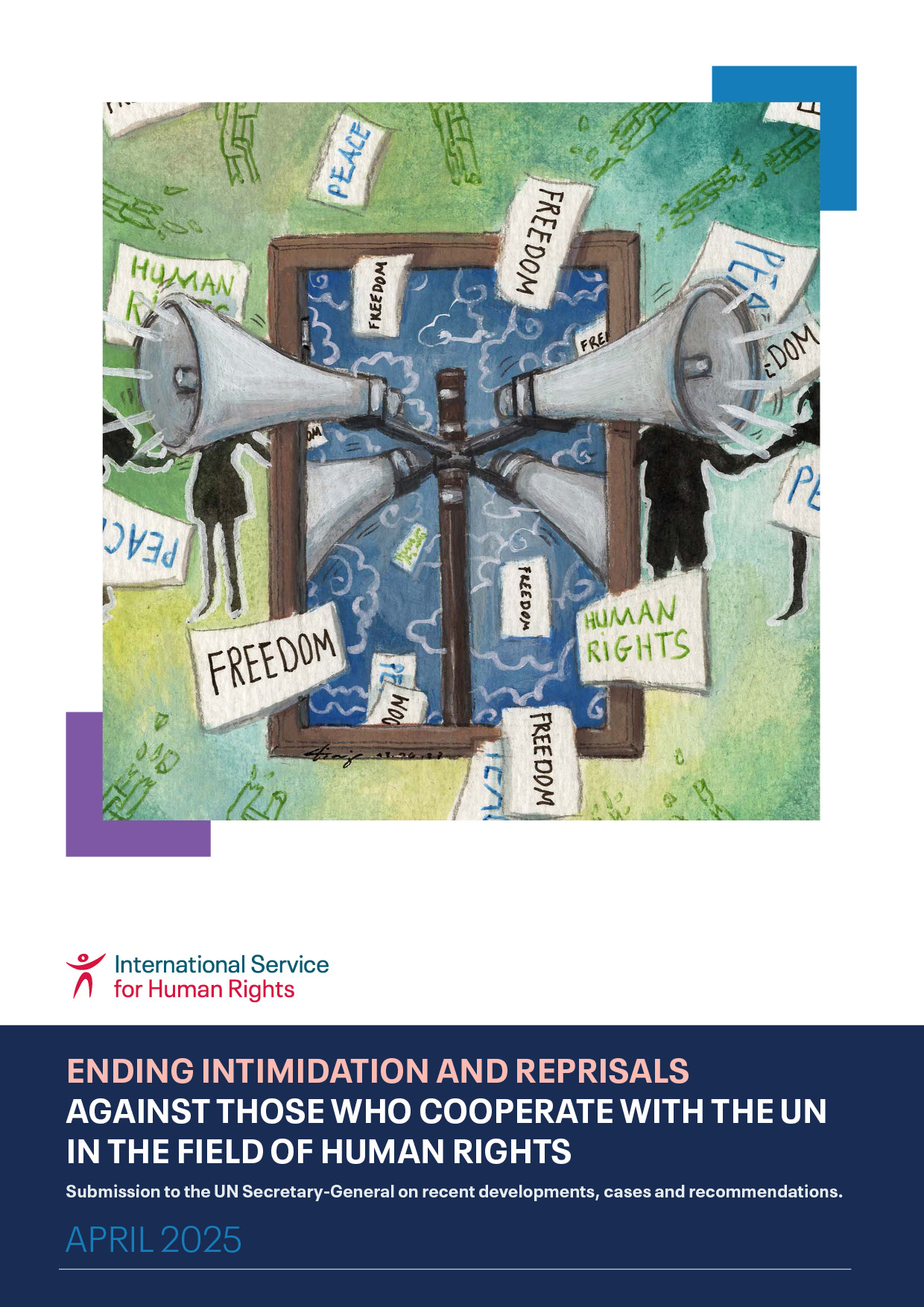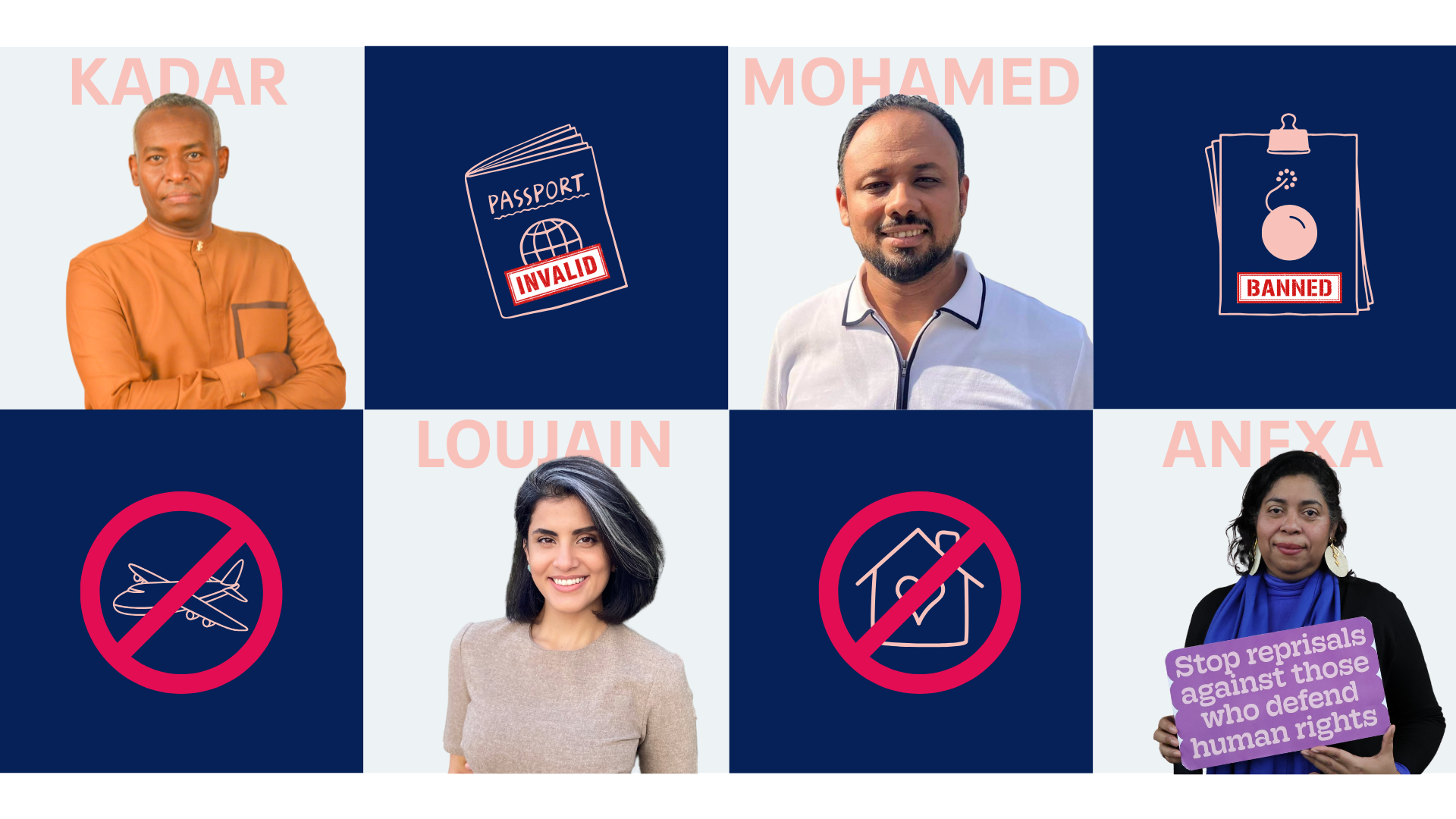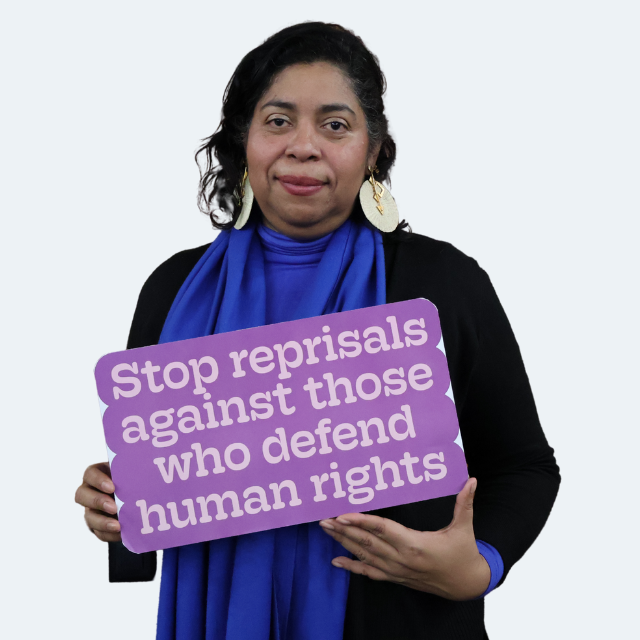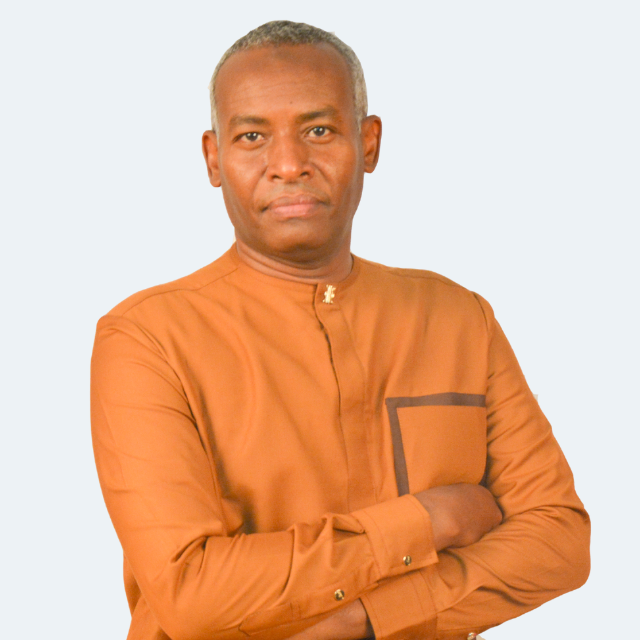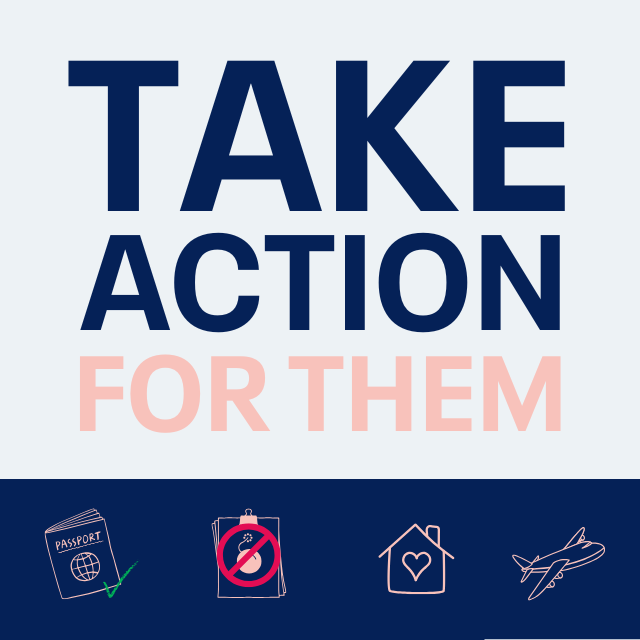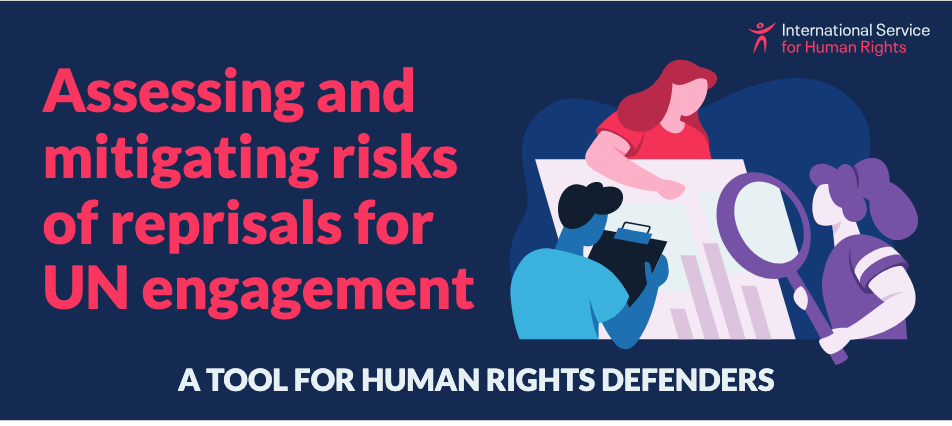We did it! On 25 September 2025, 11 States raised individual cases of intimidation and reprisal in 15 different countries and territories at the Human Rights Council‘s 60th session. The cases of Kadar Abdi Ibrahim (Djibouti) and Loujain Al-Hathloul (Saudi Arabia) were cited by States. Cases from ISHR’s 2022 and 2024 campaigns were also among the cases mentioned, as well as the case of Basma Mostafa (Egypt) facing transnational repression.
Read the full update
On 16 October 2025, at the Third Committee of the General Assembly‘s 80th session, specific cases and situations of intimidation and reprisal were raised again by Belgium, the Netherlands and Luxembourg during this dialogue with the Assistant Secretary-General. They raised the cases of Human Rights Center Viasna (Belarus), Chow Hang Tung (Hong Kong) and Pham Doan Trang (Viet Nam).
Read the full update
Additionally, 70 States joined the cross-regional statement on reprisals led by Ireland and Uruguay, delivered at the General Discussion on the promotion and protection of human rights (item 71) at the General Assembly’s Third Committee.
Read the full update
Travel bans, what does this mean in practice?
A travel ban may be less visible than a prison cell, but its impact is deeply damaging. It restricts defenders from attending UN meetings, carrying out their work, reuniting with family or seeking international protection.
Travel bans take many forms. These include cancelling or confiscating passports, detaining defenders attempting to exit a country, denying defenders entry back into the country, and placing defenders on terrorist lists.
As reprisals evolve, what started as detention can turn into surveillance, harassment, or restrictions on movement.
This is what happened to Loujain and Mohamed, prominent human rights defenders from Saudi Arabia and Egypt respectively. After unjustly spending years in arbitrary detention, they were ‘freed’, but important conditions on that freedom remained in place: Loujain is under a travel ban and cannot leave Saudi Arabia. Mohamed was granted a presidential pardon but is still listed on a terrorist list, preventing him from traveling.
Meanwhile, Anexa, an Indigenous human rights defender, is unable to return to her home country of Nicaragua, and Kadar from Djibouti had his passport confiscated since 2018, preventing him from leaving the country and doing his work.
In all of those cases, the intent of the governments is the same — to punish defenders for daring to speak out at the UN and to deter others from doing the same.
Through this campaign, we share their stories. These are not just cases of reprisals — they are real lives disrupted, silenced, and confined. But they are also stories of resilience and perseverance for social change.
